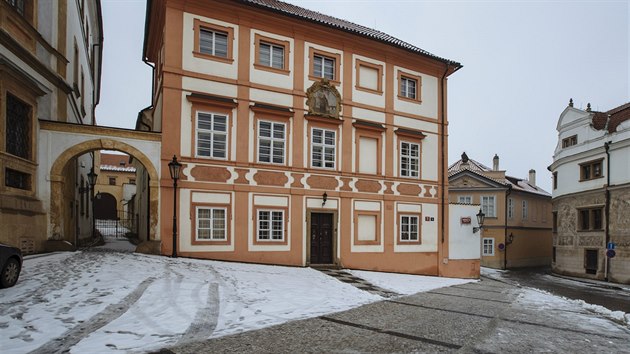With each birthday passed
as a bead and one more link
or even another pearl perhaps,
added to a swelling string
to fit into some Gods’ treasure
hoard or to gild and titivate
among them a divine chest,
more and more must someone,
someone else—than me—ring
a bell and tell and remind me
of the things I did or lived
and which sank or lapsed
from the clasp of memories.
And it was in this vein
that I came across Po Chü-I,
the Hermit of Xiangshan,
and his lines of gratitude
for a gift of a goshawk
which, in turn, brought
back a reminiscence
of another noble hawk,
long lost amid years,
who used at times,
but only early on,
to fly by and perch
on top of an electric pole
near that house just west
of Ostrov, my native town,
where, since the age of ten,
I had to move wheelbarrows
up a hill and keep clearing
of mud some endless ditch
where nature ever seemed
spectral, hushed, and stunned
and a sense of an age-old curse
was way too palpable and real
in the air everywhere and so
was its pressing cruel weight
which, both exactly and strangely,
then a peer of mine well expressed
in a writeup for the class in Czech lit
after he and another went and crept
behind the willows there to spy on me.
And yet there was also one old spring
beneath a hollowed, blackened stone
the official value of which was set
at the mere 300 Czech crowns,
which was just 10 dollars then,
and my father joked that it might
as well be mine since as much
was what all of me was worth.
And now, holding the verses
by the Hermit of Xiangshan
in front of me, the old goshawk
from that Ore Mounts’ valley
came back to me once more,
even speaking now and way
more clearly than any time before,
since doing so with Po Chü-I’s voice
that, like that water-cleaning spring,
the bird too wasn’t just an omen, but
also a gift the key to which was kept
all these years in someone else’ book,
as a promise, auspice, and cast oracle,
all these years—much of life in fact—
held and kept so far away from there
and then, in between those mountains
and that to town in which its church
copper belfry looked irredeemably distant
against the hills, ancient volcanoes of Doupov,
the very “haunt and lair” of forgotten Gods
and dotted with scattered, buried Slavic forts.
There just west of the town where the lonely
house stands by the road, right before a curve,
darkness undoubtedly made its shallow beds
and must have fed on shades and cracks
in living souls, portending that there too
a Gate to Hell had been close at hand
as the deaths both of Mr. Hynek
and of my father validate,
having happened like a toll,
a due that had to be paid,
in the self-same place.
But that spring
pouring out
of darkness
for so long
its purified,
calm stream,
and the hawk
and the key
from a verse
by the august
Chinese hermit
do now jointly tell
that all these three
came to be a gift,
a blessing
through which
something immortal
may speak, having bid
its time and held its breath
for which, as Po Chü-I’s writes,
one shall bless in turn and bow in gratitude.
